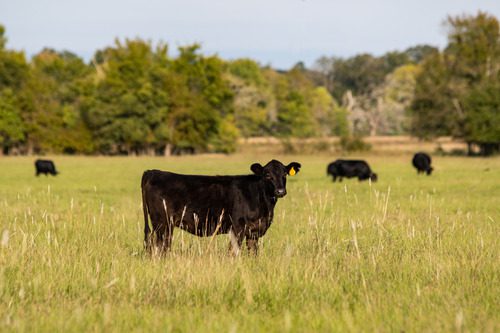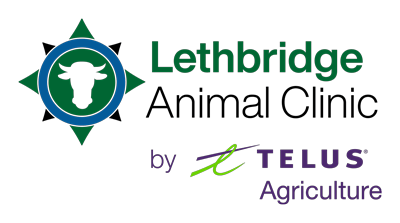Common Emergencies with Cattle
When it comes to the health and well-being of cattle, being prepared for emergencies is key for any farm or ranch. In the Lethbridge area, the Lethbridge Animal Clinic has become a trusted partner for local farmers, providing essential veterinary services to keep their herds healthy. Understanding common emergencies that cattle can face and knowing when to call for professional help is critical. This blog aims to educate cattle owners on recognizing the signs of these emergencies and stresses the importance of timely veterinary care. If you suspect your cattle are facing any of these issues, don’t hesitate to call Lethbridge Animal Clinic at (403) 327-4150.

Bloat in Cattle
Bloat is a condition that can quickly become life-threatening for cattle. It occurs when gas accumulates in the animal’s rumen and cannot escape, causing the abdomen to swell. This condition can lead to difficulty breathing and can be fatal if not treated promptly.
Recognizing Bloat
Signs include:
- A swollen left side
- Discomfort
- Restlessness
- Difficulty breathing
Cattle may also show signs of distress.Immediate veterinary intervention is crucial. Our team at Lethbridge Animal Clinic is equipped to provide the necessary treatments to relieve bloat and prevent further health complications.
Foot Rot and Injuries
Foot problems in cattle, such as foot rot or injuries, can not only cause pain and lameness but also affect their overall health and productivity. These conditions are often caused by bacterial infections or physical trauma.
Identifying Foot Issues
Symptoms include lameness, swelling, and noticeable changes in gait. In the case of foot rot, there may also be a foul odor. Early detection and treatment are vital. At Lethbridge Animal Clinic, we offer comprehensive care for foot health, ensuring your cattle return to their best state as quickly as possible.
Calving Difficulties (Dystocia)
Dystocia, or calving difficulties, is a common emergency that requires immediate attention. It can pose a significant risk to both the cow and calf if not managed properly. Indications include:
- Prolonged labor
- The cow’s inability to deliver the calf on her own
- Visible distress.
Our veterinary team is skilled in providing calving assistance and ensuring the health and safety of both mother and calf. Prompt action can make a significant difference in outcomes.
Respiratory Illnesses
Respiratory illnesses in cattle, such as pneumonia, can rapidly deteriorate their health, particularly in young calves and stressed animals. These illnesses are often triggered by environmental factors, such as poor ventilation or sudden weather changes.
Detecting Respiratory Illness
Symptoms to watch for include:
- Coughing
- Nasal discharge
- Fever
- Lethargy
Lethbridge Animal Clinic offers diagnosis and treatment options for respiratory conditions, helping your cattle recover and reducing the spread of illness within your herd.
Nutritional Deficiencies and Poisoning
Proper nutrition is essential for the health of cattle, and deficiencies can lead to serious health issues. Additionally, accidental ingestion of toxic substances can occur, posing immediate risks.
Addressing Nutritional Needs and Poison Risks
Signs of deficiencies include poor growth, weight loss, and weak immune response. Poisoning symptoms vary but can include drooling, diarrhea, and severe distress. Our team provides nutritional counseling and emergency care for poisoning, ensuring your cattle receive the best possible outcome.
Infectious Diseases
Infectious diseases such as bovine tuberculosis, brucellosis, and foot-and-mouth disease pose significant threats to cattle herds. These diseases can lead to severe health issues and economic losses.
Preventing and Managing Infectious Diseases
Vaccination, biosecurity measures, and regular health check-ups are key to preventing these diseases. Early detection and quarantine of affected animals are essential steps in managing outbreaks. Lethbridge Animal Clinic supports cattle owners in disease prevention strategies and provides care for affected animals, helping to maintain herd health and productivity.
When to Call the Vet
Knowing when to call a veterinarian can be the difference between life and death for cattle facing emergencies. If you observe any of the symptoms mentioned above or other concerning behaviors, it’s important to act quickly. Our team at Lethbridge Animal Clinic is committed to providing timely and effective care for your cattle. For any concerns or emergencies, please call us at (403) 327-4150. By staying informed about common cattle emergencies and working closely with your veterinarian, you can help keep your cattle healthy and thriving. Lethbridge Animal Clinic is your partner in this endeavor, offering expert care and advice to support the local farming community.
